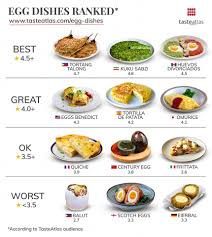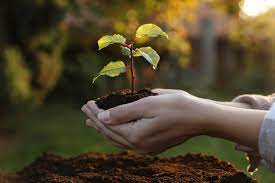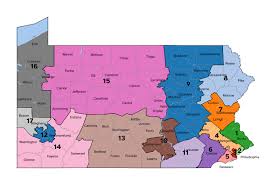The Art of Wine: Unveiling the Expertise of a Wine Specialist
Wine, with its rich history and diverse flavors, has long been a symbol of sophistication and indulgence. Behind every exceptional bottle lies the expertise of a wine specialist, whose knowledge and passion elevate the experience of wine appreciation to new heights.
What exactly does a wine specialist do? At the core of their role is a deep understanding of grape varieties, regions, production methods, and flavor profiles. They are connoisseurs who can guide both novice enthusiasts and seasoned collectors in selecting the perfect bottle for any occasion.
A wine specialist’s expertise extends beyond simply recommending wines. They can curate wine lists for restaurants, host tasting events to educate others about different varietals, and even provide insight into proper storage and serving techniques to ensure that each bottle reaches its full potential.
One key aspect of being a wine specialist is the ability to continuously expand one’s knowledge. Staying up-to-date on industry trends, attending tastings and seminars, and exploring new winemaking regions are all part of the journey toward becoming an expert in the world of wine.
Whether it’s pairing a bold red with a hearty steak or savoring a delicate white on a warm summer evening, a wine specialist can enhance every sip by sharing their expertise and passion for this timeless beverage.
So next time you raise your glass to toast to life’s moments big or small, remember the dedication and skill that goes into each bottle from vineyard to table—and raise a toast to the unsung heroes behind it all: the wine specialists.
7 Essential Tips for Aspiring Wine Specialists: Cultivating Expertise from Grape to Glass
- Develop a deep knowledge of different grape varieties.
- Learn about various wine regions around the world.
- Practice tasting and identifying different flavors and aromas in wines.
- Understand the process of winemaking from vine to bottle.
- Stay updated on current trends and developments in the wine industry.
- Build a network within the wine community to share knowledge and experiences.
- Consider pursuing certifications such as Certified Sommelier or Master of Wine.
Develop a deep knowledge of different grape varieties.
To excel as a wine specialist, it is crucial to develop a profound understanding of various grape varieties. Each grape brings its unique characteristics to the wine, influencing its flavor profile, aroma, and overall quality. By immersing oneself in the intricacies of different grape types—such as Cabernet Sauvignon, Chardonnay, Pinot Noir, and more—a wine specialist can confidently recommend the perfect bottle to suit any palate or occasion. Mastering the nuances of grape varieties is like unlocking a treasure trove of flavors and aromas that enrich the wine experience and elevate one’s expertise in the world of oenology.
Learn about various wine regions around the world.
To truly appreciate the art of wine, aspiring enthusiasts should delve into the diverse and fascinating wine regions around the world. Each region boasts its own unique terroir, climate, and winemaking traditions that influence the flavors and characteristics of the wines produced there. By exploring the renowned vineyards of France, the lush valleys of Italy, the sun-kissed landscapes of California, and beyond, one can gain a deeper understanding of how geography shapes the wines we enjoy. Embracing this knowledge not only enhances one’s tasting experience but also opens doors to a world of discovery and appreciation for the intricacies of winemaking on a global scale.
Practice tasting and identifying different flavors and aromas in wines.
To excel as a wine specialist, it is crucial to practice tasting and identifying the diverse flavors and aromas present in wines. By honing your palate through regular tastings, you can develop a keen sense of discernment that allows you to distinguish between varietals, regions, and vintages with precision. Training your senses to detect subtle notes of fruits, spices, herbs, and other nuances not only enhances your ability to recommend wines but also deepens your appreciation for the intricate artistry behind each bottle.
Understand the process of winemaking from vine to bottle.
To truly excel as a wine specialist, it is essential to delve deep into the intricate process of winemaking, from vine to bottle. Understanding the journey that grapes undertake from cultivation in the vineyard to fermentation, aging, and bottling is crucial in appreciating the nuances and complexities of each wine. By grasping the labor-intensive steps involved in crafting a fine wine, a wine specialist can not only recommend bottles with confidence but also convey the story behind each sip, enriching the overall tasting experience for enthusiasts and novices alike.
Stay updated on current trends and developments in the wine industry.
To excel as a wine specialist, it is crucial to stay updated on current trends and developments in the dynamic wine industry. By keeping abreast of new grape varieties, emerging winemaking techniques, and evolving consumer preferences, a wine specialist can offer informed recommendations and insights to enthusiasts and connoisseurs alike. Embracing continuous learning not only enhances one’s expertise but also ensures that each interaction with wine remains fresh, exciting, and relevant in a rapidly changing landscape.
Build a network within the wine community to share knowledge and experiences.
Building a network within the wine community is a valuable tip for aspiring wine specialists. By connecting with fellow enthusiasts, sommeliers, winemakers, and industry professionals, individuals can broaden their understanding of wine and gain insights from diverse perspectives. Sharing knowledge and experiences within this network not only fosters a sense of camaraderie but also opens doors to new opportunities for learning and growth in the dynamic world of wine.
Consider pursuing certifications such as Certified Sommelier or Master of Wine.
For aspiring wine specialists looking to deepen their knowledge and credibility in the industry, pursuing certifications such as Certified Sommelier or Master of Wine can be a transformative step. These prestigious certifications not only validate expertise but also provide comprehensive training in various aspects of wine, from tasting and pairing to wine production and regions. By attaining these esteemed qualifications, wine specialists can enhance their professional skills, broaden their career opportunities, and gain recognition as true connoisseurs in the world of wine.









